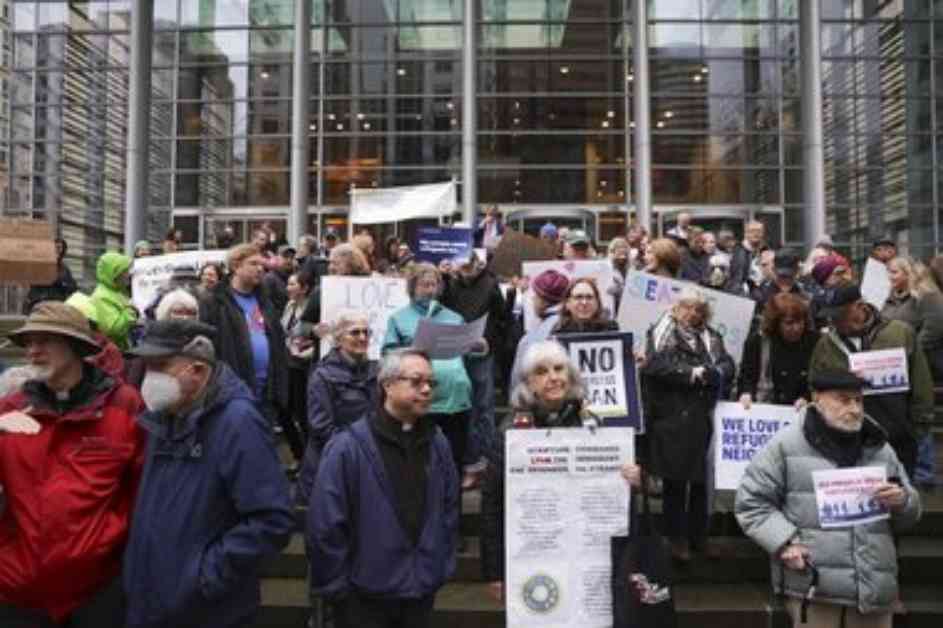A U.S. District Judge in Seattle recently made a significant decision to block President Donald Trump’s executive order aimed at suspending the nation’s refugee admissions system. The ruling, issued on February 25th, came in response to a lawsuit filed by prominent refugee aid groups. These organizations contended that the President’s executive order, which sought to halt the federal refugee resettlement program, was in conflict with the established refugee admissions process created by Congress.
Judge Jamal Whitehead’s ruling was a pivotal moment in the ongoing legal battle surrounding refugee admissions in the United States. He stated that the President’s actions effectively undermined the will of Congress in setting up the nation’s refugee admissions program. While acknowledging the President’s authority to suspend refugee admissions, Judge Whitehead emphasized that this authority was not without limits.
The lawsuit, brought forth by the International Refugee Assistance Project on behalf of Church World Service, HIAS (a Jewish refugee resettlement agency), Lutheran Community Services Northwest, as well as individual refugees and their family members, highlighted the detrimental impact of President Trump’s order. The plaintiffs argued that the order severely hindered their ability to provide essential services to refugees, including those who were already in the U.S.
One of the most poignant aspects of the lawsuit was the real-life consequences faced by refugees as a result of the executive order. Some refugees who had been approved to come to the U.S. had their travel plans abruptly canceled, while families who had long awaited reunification were forced to remain separated. These personal stories underscored the human toll of the policy changes initiated by the Trump administration.
President Trump’s executive order cited concerns about the capacity of cities and communities to absorb large numbers of migrants, including refugees. The order suggested that the refugee program, which has been a cornerstone of legal migration to the U.S. for decades, needed to be suspended due to the strain caused by “record levels of migration.” This decision marked another chapter in the ongoing politicization of the federal refugee program, which has garnered increased attention and scrutiny in recent years.
It’s important to note that this legal battle is not an isolated incident. Last week, a federal judge in Washington, D.C. declined to immediately block similar actions taken by the Trump administration in a lawsuit brought by the United States Conference of Catholic Bishops. The outcome of that case remains to be seen as it heads towards another hearing on February 28th.
In the midst of these legal proceedings and policy changes, the fate of countless refugees hangs in the balance. The impact of these decisions extends far beyond legal arguments and courtrooms—it affects real people, families, and communities striving to find safety and security in a new land. As the debate over refugee admissions continues, the human stories behind the headlines serve as a poignant reminder of the stakes involved in these policy decisions. The fight for the rights and well-being of refugees is far from over, and the outcome of these legal battles will shape the future of refugee admissions in the United States for years to come.

